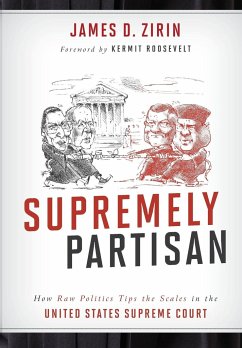Nicht lieferbar

Partisan Hostility and American Democracy
Explaining Political Divisions and When They Matter
"An unflinching examination of the effects and boundaries of partisan animosity. For generations, experts argued that American politics needed cohesive parties to function effectively. Now many fear that strong partisan views, particularly hostility to the opposing party, are damaging democracy. Is partisanship as dangerous as we fear it is? To provide an answer, this book offers a nuanced evaluation of when and how partisan animosity matters in today's highly charged, dynamic political environment, drawing on panel data from some of the most tumultuous years in recent American history, 2019 t...
"An unflinching examination of the effects and boundaries of partisan animosity. For generations, experts argued that American politics needed cohesive parties to function effectively. Now many fear that strong partisan views, particularly hostility to the opposing party, are damaging democracy. Is partisanship as dangerous as we fear it is? To provide an answer, this book offers a nuanced evaluation of when and how partisan animosity matters in today's highly charged, dynamic political environment, drawing on panel data from some of the most tumultuous years in recent American history, 2019 through 2021. The authors show that partisanship powerfully shapes political behaviors, but its effects are conditional, not constant. Instead, it is most powerful when politicians send clear signals and when an issue is unlikely to bring direct personal consequences. In the absence of these conditions, other factors often dominate decision-making. The authors argue that while partisan hostility has degraded US politics--for example, politicizing previously non-political issues and undermining compromise--it is not in itself an existential threat. As their research shows, the future of American democracy depends on how politicians, more than ordinary voters, behave. "--













